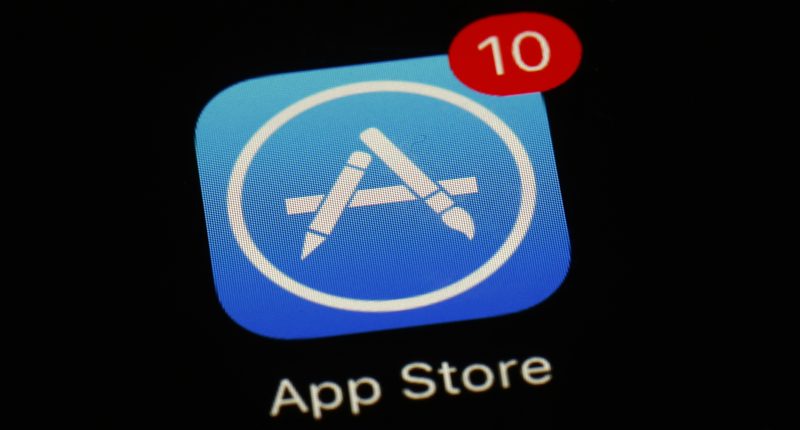APPLE will allow alternative app stores to appear on iPhones purchased inside the EU, following a regulatory spat with the bloc.
This not only offers iPhone owners a new selection of free apps – but reduced fees in Apple’s official App Store.
Currently, iPhone users across the globe can only download apps via Apple’s own App Store.
But it has been accused of creating a monopoly in the app world, by giving developers no choice but to go through its own channels and paying for the privilege to do so.
Apple charges developers up to 30 per cent commission on all in-app purchases.
This regime has meant that developers who either fail to meet Apple’s standards, or do not agree to paying its fees, are excluded from all Apple gadgets and their users.
READ MORE ON APPLE
It is this rule that led to Fortnite being banned from the App Store in 2020, after its developer Epic Games violated in-app payment guidelines.
Analysts believe games are the biggest contributor to spending inside the App Store, which is in turn the largest component of Apple’s $46billion-per-year (£35billion) services segment.
It will be a historic overhaul of the App Store by Apple, as the Silicon Valley giant bows to the EU ahead of the block imposing tough new antitrust rules.
“The changes we’re announcing today comply with the Digital Markets Act’s requirements in the European Union, while helping to protect EU users from the unavoidable increased privacy and security threats this regulation brings,” Apple said.
Most read in Phones & Gadgets
What does this look like for EU iPhones?

Analysis by Millie Turner, Tech & Science Reporter for The Sun
For those in the EU, not a lot will change on the surface.
But under the hood, users will be given a new button in the Settings app to set their preferred alternative app store as their default app store – if desired.
When using a third-party app store, users in the EU will get a pop up warning when an app contains malware.
There are also new screens for verifying the information from an alternative app.
Apps distributed through Apple’s official App Store will pay a reduced commission – about 17 per cent less than before – which could pave the way for slightly cheaper apps and in-app items and features.
Meanwhile, apps distributed through alternative app stores will have no commission, which suggests these apps could be priced at even less.
What EU iPhone users will now need to wrestle with is the realities of so-called sideloading apps – which can often be Trojan Horses for malware.
UK users will miss out – for now – after the country made the decision to leave the EU in 2016.
Although the UK’s Digital Markets Bill, which is currently going through Parliament, is likely to put Apple’s practices under similar regulatory scrutiny.
Sideloading
Downloading apps from unofficial app stores is a common practice known as sideloading.
Apple has always had a clear-cut ban on sideloading apps.
The company has warned that while it will impose high standards for all new alternative apps and stores, it believes the move will create additional security risks for customers.
While Google has always warned users against it, Android owners can sideload apps onto their devices.
As a result, malware is far more common on Android devices than Apple ones, according to experts.
What are the risks of sideloading?

Experts at Bitdefender say it themselves, but the “Android ecosystem is known for its exposure to security risks due to sideloaded apps.”
In a report last year, the security company suggested that iOS users may find themselves in the same boat as Android owners, should Apple comply with the EU’s new Digital Markets Act.
Now the sideloading ship has set sail, let’s take a look at some of the risks of third-party app stores.
“While sideloading can offer access to a broader range of apps and services, it introduces many security risks,” experts wrote.
“The biggest issue associated with sideloading is unknowingly installing malware on your device by your own hand.
“Sideloaded apps don’t go through the same rigorous security checks as the apps distributed through official app stores.
“Therefore malicious actors may distribute harmful software that can carry out malicious activities.”
Beyond malware, other risks include system crashes due to compatibility issues between the app and your phone’s operating system.
Less privacy is also a big one, as sideloaded apps may request excessive permissions or access to sensitive data on your device without appropriate oversight.
This can lead to unauthorised access to your photos, contacts and location data.
These apps may also be lax about security updates.
“Developers who sell their software outside the official venues may not be so diligent in responding to security or privacy concerns,” experts added.
“This means your security updates may arrive late, or never.”









